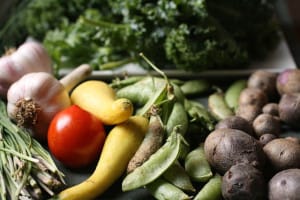Letter to the editor submitted by Cornucopia’s Mark Kastel to the New York Times in response to the article below:
 |
To the editor,
Stephanie Strom’s Aug. 14 article, Recalls of Organic Food on the Rise, Report Says, is disturbing. Regardless of the rate, food recalls due to pathogenic contamination are too high in both organic and conventional food.
The increase in problems relating to organics should not be surprising. Corporate agribusiness has been poisoning our citizenry, and the FDA and USDA have been ineffective at controlling their recklessness. And Big Food now controls much of organics.
Industrial-scale (“factory”) livestock production produces sick animals that are maintained in abhorrent conditions. Organics was supposed to be the alternative, but we have seen an exponential rise in “organic” milk, meat, and eggs from the livestock factories, and a similar increase in imports of “organic” commodities from countries with endemic levels of commercial fraud and food contamination (China, India, former Soviet bloc states).
Consumers can protect their family by choosing authentic food from local certified organic farms and the companies that truly subscribe to the values that founded the industry. Brand scorecards are available at: www.cornucopia.org
Mark A. Kastel
Senior Farm Policy Analyst
The Cornucopia Institute
Cornucopia, Wisconsin
The New York Times
by Stephanie Strom
New data collected by Stericycle, a company that handles recalls for businesses, shows a sharp jump in the number of recalls of organic food products.
Organic food products accounted for 7 percent of all food units recalled so far this year, compared with 2 percent of those recalled last year, according to data from the Food and Drug Administration and the Department of Agriculture that Stericycle uses to compile its quarterly report on recalls.
In 2012 and 2013, only 1 percent of total units of food recalled were organic.
Kevin Pollack, a vice president at Stericycle, said the growing consumer and corporate demand for organic ingredients was at least partly responsible for the increase.
According to Stericycle, 87 percent of organic recalls since 2012 were for bacterial contamination, like salmonella and listeria, rather than a problem with a label. “This is a fairly serious and really important issue because a lot of consumers just aren’t aware of it,” Mr. Pollack said.
For that matter, the overall amount of food recalled because of suspected bacterial contamination has increased this year, adding to what has been an upward trend in food recalls since 2012, according to Stericycle, which predicts a 24 percent increase in the number of food units that will be recalled by the F.D.A. this year.
The Organic Trade Association, however, took issue with Stericycle’s accounting of recalls, saying its own quick analysis of recall data from the F.D.A. and the
Agriculture Department shows the problem is less severe, with organic products accounting for 4.9 percent of recalls, in line with the percentage of organic food sold out of total retail sales of food.
“A key point to keep in mind is that an overall increase in organic recalls between 2012 and 2015 would not be surprising — not because organic food is less safe, but because of the dramatic increase in organic food sales and purchases that we’ve been seeing in this country,” said Gwendolyn Wyard, senior director of regulatory and technical affairs at the trade group.
“Sales of organic food in the U.S. have risen by almost 25 percent just since 2012, and the number of organic products on the market is increasing steadily as demand for organic increases,” she said.
Ms. Wyard also noted that food safety mechanisms had increased since 2012, with a corresponding increase in food recalls.
For instance, organic spinach from one producer was recalled in March because of the possibility that it was contaminated by listeria. The spinach was used by five brands, including Amy’s Kitchen and Costco, in more than 500,000 individual units. No one has yet claimed to be sick from eating any of the products containing the spinach, said Bill Marler, a lawyer in Washington State who is an expert on food safety issues.
Stericycle counts every unit affected, while the trade association argues that it was really just a single recall.
Nonetheless, more consumers are buying food products that are either wholly organic or incorporate some organic ingredients, as more food companies incorporate organic ingredients in their products.
According to the association, sales of certified organic products hit $39 billion last year, up 11.3 percent from 2013.
Mr. Marler said the trend in organic food recalls reminded him of rising recalls of foreign products several years ago.
“People would get so excited when a product from overseas caused illness and injury, saying, oh, it’s because of more imports from China or Mexico or wherever,” he said. “I used to say it wasn’t a big deal because there wasn’t that much imported food, but now we are seeing more recalls related to foreign-produced food because there’s more of it on the market.”
He also noted that a single large recall involving tens of thousands of products may cause distortions in the data. “Is it a spike or a trend?” he said. “You have to watch what happens over time.”

